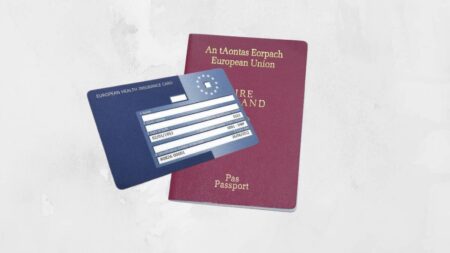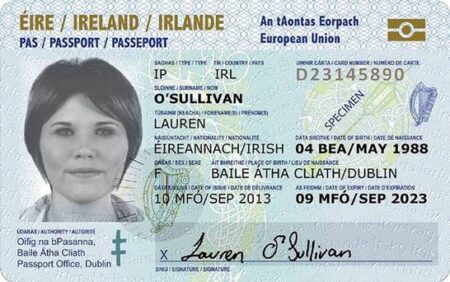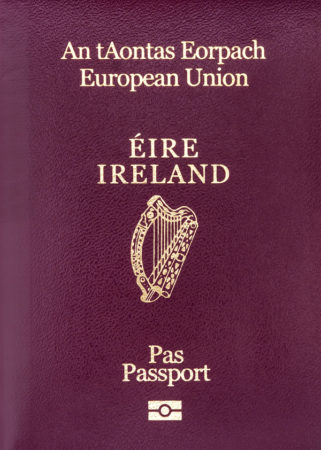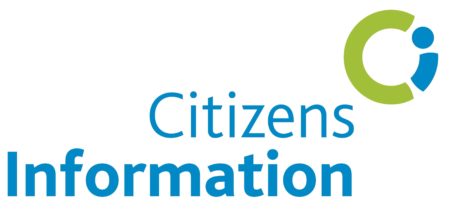4 August 2025
By Bryan McCarthy
bryan@TheCork.ie
Ciara O’Gorman, Development Manager with South Munster Citizens Information Services, looks at information in relation to planning for holidays. ‘The Citizens Information service provides information on a wide range of issues such as applying for passports, your consumer rights if you are having problems with your flights and in relation to matters such as the European Health Insurance Cards.’
The European Health Insurance Card?

The European Health Insurance Card is a single sided blue coloured card, many people store it with their wallet, because it only works outside of Ireland, and only within the EU.
The European Health Insurance Card (EHIC) allows you to access public healthcare in another EU/EEA state for free or at a reduced rate. You can use it when you are travelling abroad or when you are staying temporarily in another EU State. Each family member needs their own card. It does not cover private healthcare and does not replace travel insurance. It lasts up to 4 years. When abroad, always carry your EHIC with you. There is no fee for the European Health Insurance Card or a Temporary Replacement Certificate. Renewing a European Health Insurance Card is also free.
How to Apply
You complete an application form and send the completed form to your Local Health Office. You can download the form or pick one up from your local Citizens Information Centre. If you have a medical card or drug payment scheme card you can apply on-line.
If you already had an EHIC but it has expired, you can renew it online if you have your old EHIC number and your PPS number, provided that your address has not changed.
What if you don’t have your EHIC before you travel?
If you don’t have your European Health Insurance Card for any reason, you can get a Temporary Replacement Certificate. This Certificate gives you the same entitlement as the Card, but for a shorter period. You can apply online for this Certificate, in-person or by post to your Local Health Office. You can only receive a Temporary Replacement Certificate for yourself.
Will you have to pay anything for healthcare with your EHIC?
In some EU member states, you may have to make some payment towards the cost of the services you receive, just as people in that state do. You will not receive a refund for this or for private healthcare.
An important item when travelling is your passport. What is the quickest way to renew your passport?
The Passport Service processes Passport Online applications as a priority. Applying online is the fastest way of getting your passport. Simple online renewals take around 10 working days to process. Complex online renewals take around 15 working days to process. A complex renewal is when you are asked to submit extra documentation, or you are changing information on your passport. You could be changing your name or reporting a lost or stolen passport.
If you are applying by post, using a paper application form, you should allow at least 8 weeks for your application to be processed (not including postage times). This period may be extended at certain times of the year due to increased application numbers.
If you are applying for your first Irish passport as an adult, the processing times are longer.
Updates on services and the latest turnaround times are available on the Passport Service’s website https://www.ireland.ie/en/dfa/passports/
Can you apply for your passport in person at the Passport Office?
The counter service at the Passport Office is mainly designed to help people who need their passports urgently, and don’t have enough time to apply in other ways. In these cases, you should book an appointment with the Passport Office in Dublin or Cork. Applications made in person are more expensive than applying online or through Post Passport.
First time applications cannot be made using an Urgent Appointment. The quickest way to apply for the first time is to use Passport Online.
What happens if you lose your passport or it is stolen?
If you are an Irish citizen living in Ireland and you have lost your Irish passport, or it has been stolen, you must let the Passport Office know immediately and report the loss or theft to the Garda Síochána.
If you lose your passport or it is stolen abroad, you must contact the local police and request a written statement that you have reported the loss of your passport. The Passport Service will not provide you with a new travel document without a police report. In addition, you must contact your nearest Irish embassy or consulate. They may be able to give you a replacement passport that will let you finish your trip or an emergency travel document that will get you home
If you are in a country where there is no Irish representation, you may contact an embassy or consulate of another EU member state. In some cases, the embassy or consulate of another EU Member State may issue you with an EU Emergency Travel Document (ETD).

If you have the bonus passport card, then losing your traditional passport paper booklet won’t be as stressful. The Passport Card works in the EU and EEA.
What happens if you need to renew your passport in an emergency?
The Passport Service will still offer a same-day emergency service if you need a passport due to a medical emergency or the death of a family member abroad. You can contact the Passport Service by phone 01 671 1633 or by webchat if you need a passport in an emergency.
How much does it cost to apply for a passport?
Standard 10-year, 34-page passport
- Passport Online – €75 (+ €15 postage if you live outside Ireland)
- Post Passport – €80 (+€9.50 fee)
- In person – €95 plus an appointment fee depending on turnaround time needed
Large 10-year 66-page passport
- Passport Online – €105 ((+ €5 postage if you live outside Ireland)
- Post Passport – €110 (+€9.50 fee)
- In person – €125
An Post also offers a ‘Family Application’ option where up to 4 passport applications can be enclosed in one envelope. The additional charge for a Family Application is €16.
When applying for a Child Passport do both parents have to give consent for the application?

The Passport Service must get consent from all the child’s guardians before it can issue a child’s passport. If you are not in touch with your child’s other parent or guardian, or if that parent or guardian refuses to give consent, you can apply to the District Court for a court order, which will allow the Passport Service to issue the passport without that consent.
The situation is different if you are the sole guardian of a child. This can happen if you are a single mother and the father has not arranged to become a joint guardian. It also happens if the other parent/guardian is deceased. If you are the sole guardian, you will have to provide an affidavit (AFF 1) stating that you are the sole guardian. This should be completed in the presence of a Commissioner for Oaths. If the other parent or guardian is deceased, you will also have to provide a death certificate.
A lot of people will be travelling by air to holiday destinations this summer. Are there protections in place if things go wrong?
Air passengers have specific consumer rights under European law. You have a right to get assistance from your air carrier and you may be entitled to compensation in certain situations. These situations are if you are denied boarding against your will, your flight is cancelled, your flight is delayed or you are downgraded
The law applies to all passengers departing from an EU/EEA airport. It also applies to passengers departing from an airport outside of the EU/EEA but arriving at an EU/EEA airport on an EU/EEA licensed carrier (unless they have already received compensation or assistance in that non-EU/EEA country).
If you are denied boarding because the flight is overbooked, or your flight has been cancelled or delayed, and the law does apply, the airline must provide you with a written notice setting out the rules for compensation and assistance. You must be offered 2 free telephone calls, fax messages, or emails. In addition, a sign must be displayed at the check-in area referring to air passenger rights under the law.
What are your rights if the flight is cancelled?
Where your flight is cancelled, you are entitled to a choice of:
- Refund the cost of your ticket within 7 days or
- Re-routing to your final destination at the earliest opportunity or
- Re-routing at a later date at your convenience, subject to the availability of seats.
You may also be entitled to compensation.
Are there situations where passengers are not entitled to compensation?
Yes. You are not entitled to compensation if you have received at least 2 weeks’ notice of the cancellation or you have received between 2 weeks and 7 days’ notice but you have been offered an alternative flight departing no more than 2 hours before your original departure time and arriving at your final destination less than 4 hours after your original scheduled time of arrival. Furthermore, you will not receive compensation if you have received less than 7 days’ notice but you have been offered an alternative flight departing no more than 1 hour before your original departure time and arriving at your final destination less than 2 hours after your original scheduled time of arrival.
If the airline can prove that the cancellation was caused by an extraordinary circumstance which could not have been avoided, even if all reasonable measures had been taken, no compensation is payable. Extraordinary circumstances may include:
- Weather conditions
- Air traffic control restrictions
- Security risks and
- Industrial disputes that affect the operation of the flight
How do you make a complaint if you are unhappy with the assistance or compensation you receive?
If you have a complaint about the assistance and compensation you have received for denied boarding or cancelled or delayed flights, you must begin by contacting your airline directly.
If you feel your rights have not been met and you have not received the level of treatment or compensation to which you are entitled, you should contact the Irish Aviation Authority or the Competition and Consumer Protection Commission (CCPC) and make a complaint. You can also contact the Directorate-General for Transport and Energy of the European Commission.
If you would like more information about any of the issues covered or have a different query, please contact your local CIC. The service continues to work hard to respond to the needs of the community. We aim to be there to support people when they encounter changes in their circumstances or feel they are at a crossroads in their lives. We are very much a face-to-face service and offer appointments as well as taking drop ins, as resources allow. If anyone needs information or assistance in relation to their entitlements, we encourage you to drop in to one of our offices and bring any documents or correspondence relating to the matter with you. Staff will discuss your situation with you and lay out your options. At the end of the day, you will decide what option is best for you – but hopefully with our help, you will make an informed choice. Receiving the correct information that is relevant to your situation at an early stage can make a significant difference and avoid difficulties down the road.

South Munster Citizens Information
Further information on this and other topics is available from Cork City Centre CIC in Cornmarket Street, open to the public on Mondays, Tuesdays, Thursdays and Fridays from 9.45am to 12.30pm and Wednesdays from 2pm to 4pm, Tel 0818 07 6950 (Lines open Mon-Fri 10am-4.30pm). Blackpool CIC is also open to the public on Tuesdays and Thursdays from 10am to 1pm and 2pm to 4pm, Tel 0818 07 6890 while Hollyhill CIC is open Mondays and Fridays from 10am to 1pm and 2pm to 4pm, Tel: 0818 07 6850.
Information is also available from the Citizens Information Phone Service Tel: 0818 07 4000 (9am – 8pm, Mon – Fri) or online at www.citizensinformation.ie
